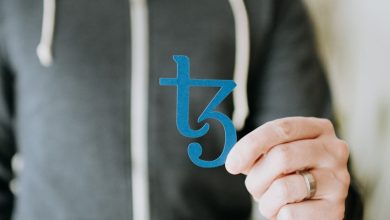The Importance of Security Audits in Blockchain Development

- Understanding the role of security audits in blockchain development
- The benefits of conducting regular security audits for blockchain projects
- Common vulnerabilities in blockchain development that can be identified through security audits
- How security audits can enhance the overall security posture of blockchain applications
- Best practices for implementing security audits in blockchain development processes
- The role of third-party security audit firms in ensuring the integrity of blockchain projects
Understanding the role of security audits in blockchain development
Security audits play a critical role in the development of blockchain technology. This process involves a comprehensive review of the system’s code, architecture, and implementation to identify potential vulnerabilities and security risks. By conducting security audits, developers can ensure that their blockchain applications are robust and secure against cyber threats.
One of the main reasons why security audits are essential in blockchain development is to protect user data and assets. With the rise of cyber attacks and hacking incidents targeting blockchain platforms, ensuring the security of these systems has become more important than ever. Security audits help developers identify and address security weaknesses before they can be exploited by malicious actors.
Furthermore, security audits can also help improve the overall quality of blockchain applications. By identifying and fixing vulnerabilities early in the development process, developers can prevent costly security breaches and reputational damage. This proactive approach to security can enhance user trust and confidence in the blockchain platform.
Overall, security audits are a crucial component of blockchain development. They help developers identify and mitigate security risks, protect user data and assets, and improve the overall quality of blockchain applications. By prioritizing security audits in the development process, developers can build more secure and reliable blockchain solutions that meet the needs of users and stakeholders.
The benefits of conducting regular security audits for blockchain projects
Regular security audits are crucial for blockchain projects to ensure the safety and integrity of the system. By conducting these audits, developers can identify and address any vulnerabilities or weaknesses in the code, smart contracts, or overall architecture of the project. This proactive approach helps prevent potential security breaches and protects the project from malicious attacks.
Security audits also help build trust and credibility with users, investors, and other stakeholders. By demonstrating a commitment to security and transparency, blockchain projects can attract more interest and support from the community. This can lead to increased adoption and success for the project in the long run.
Furthermore, regular security audits can help projects stay compliant with regulations and industry best practices. This is especially important in the highly regulated and rapidly evolving blockchain space, where non-compliance can lead to legal issues, financial losses, and reputational damage. By staying ahead of the curve with security audits, projects can mitigate these risks and operate with confidence.
In conclusion, conducting regular security audits for blockchain projects is essential for ensuring the safety, trustworthiness, and compliance of the system. By investing in security early on and making it a priority throughout the development process, projects can set themselves up for long-term success and sustainability in the competitive blockchain industry.
Common vulnerabilities in blockchain development that can be identified through security audits
When it comes to blockchain development, there are several common vulnerabilities that can be identified through security audits. These vulnerabilities can pose significant risks to the integrity and security of the blockchain network, making it crucial to address them proactively.
- Smart contract vulnerabilities: Smart contracts are susceptible to bugs and vulnerabilities that can be exploited by malicious actors. These vulnerabilities can lead to unauthorized access, manipulation of data, or theft of funds.
- Weak private key management: Inadequate management of private keys can expose the blockchain network to security breaches. If private keys are compromised, attackers can gain unauthorized access to sensitive information and assets.
- Insufficient network security: Weak network security measures can make the blockchain network vulnerable to attacks such as DDoS attacks, sybil attacks, and eclipse attacks. These attacks can disrupt the network and compromise its integrity.
- Flawed consensus mechanisms: Flaws in the consensus mechanisms used by the blockchain network can undermine its security and reliability. Vulnerabilities in the consensus algorithm can be exploited to manipulate the network and compromise its integrity.
- Insecure data storage: Insecure storage of data on the blockchain can expose sensitive information to unauthorized access. Weak encryption and improper data handling practices can make the network vulnerable to data breaches.
By conducting regular security audits, developers can identify and address these vulnerabilities before they are exploited by malicious actors. Security audits help ensure that the blockchain network is secure, reliable, and resistant to attacks, ultimately safeguarding the integrity of the network and the assets stored on it.
How security audits can enhance the overall security posture of blockchain applications
Security audits play a crucial role in enhancing the overall security posture of blockchain applications. By conducting regular audits, developers can identify and address potential vulnerabilities within the system before they can be exploited by malicious actors. These audits help ensure that the blockchain application is robust and secure, protecting user data and assets from cyber attacks.
One of the key benefits of security audits is that they provide developers with valuable insights into the weaknesses of their blockchain application. This allows them to make necessary improvements to strengthen the security of the system. Additionally, security audits help in ensuring that the application complies with industry best practices and regulatory requirements, further enhancing its security.
Moreover, security audits help build trust among users, investors, and other stakeholders in the blockchain ecosystem. By demonstrating a commitment to security through regular audits, developers can instill confidence in the reliability and integrity of their application. This, in turn, can help attract more users and investments, driving the growth and adoption of the blockchain application.
Best practices for implementing security audits in blockchain development processes
When it comes to blockchain development, implementing security audits is crucial to ensure the integrity and safety of the system. Here are some best practices to follow when integrating security audits into your development processes:
- Engage with reputable security audit firms to conduct regular assessments of your blockchain system.
- Implement a bug bounty program to incentivize ethical hackers to identify and report vulnerabilities in your system.
- Regularly update your security protocols and mechanisms to stay ahead of potential threats.
- Conduct thorough code reviews to identify and address any security vulnerabilities in your blockchain code.
- Train your development team on best practices for secure coding and ensure they adhere to these practices throughout the development process.
By following these best practices, you can minimize the risk of security breaches and ensure that your blockchain system is robust and secure.
The role of third-party security audit firms in ensuring the integrity of blockchain projects
Third-party security audit firms play a crucial role in ensuring the integrity and security of blockchain projects. These firms specialize in conducting comprehensive security audits to identify vulnerabilities and weaknesses in blockchain systems. By leveraging their expertise and experience, third-party audit firms can provide an independent assessment of the security measures implemented in a blockchain project.
One of the main reasons why blockchain projects rely on third-party security audit firms is to gain credibility and trust from stakeholders. Having a reputable audit firm review the security protocols and code of a blockchain project can help reassure investors, users, and regulators that the project is secure and trustworthy. This can ultimately lead to increased adoption and investment in the project.
Additionally, third-party security audit firms can help blockchain projects comply with industry standards and best practices. By following established security frameworks and guidelines, such as those set by the Open Web Application Security Project (OWASP) or the International Organization for Standardization (ISO), blockchain projects can enhance their security posture and reduce the risk of cyber attacks.
Furthermore, third-party security audit firms can provide valuable insights and recommendations for improving the security of a blockchain project. By conducting thorough assessments and penetration testing, these firms can identify potential security gaps and suggest remediation strategies to strengthen the overall security of the project. This proactive approach to security can help prevent data breaches and other cyber threats.



